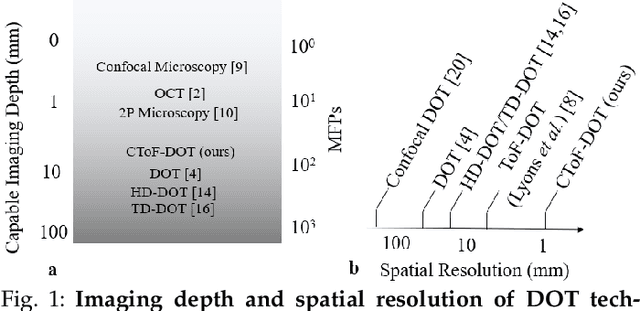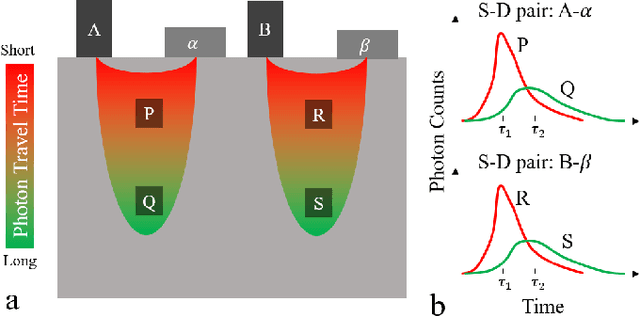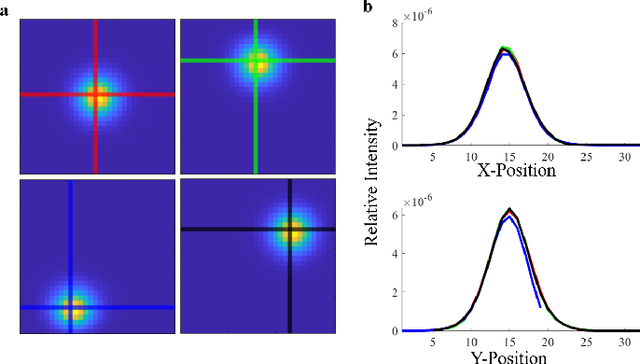High Resolution, Deep Imaging Using Confocal Time-of-flight Diffuse Optical Tomography
Paper and Code
Jan 27, 2021



Light scattering by tissue severely limits both how deep beneath the surface one can image, and at what spatial resolution one can obtain from these images. Diffuse optical tomography (DOT) has emerged as one of the most powerful techniques for imaging deep within tissue -- well beyond the conventional $\sim$ 10-15 mean scattering lengths tolerated by ballistic imaging techniques such as confocal and two-photon microscopy. Unfortunately, existing DOT systems are quite limited and achieve only centimeter-scale resolution. Furthermore, they also suffer from slow acquisition times and extremely slow reconstruction speeds making real-time imaging infeasible. We show that time-of-flight diffuse optical tomography (ToF-DOT) and its confocal variant (CToF-DOT), by exploiting the photon travel time information, allow us to achieve millimeter spatial resolution in the highly scattered diffusion regime ($>50$ mean free paths). In addition, we demonstrate that two additional innovations: focusing on confocal measurements, and multiplexing the illumination sources allow us to significantly reduce the scan time to acquire measurements. Finally, we also rely on a novel convolutional approximation that allows us to develop a fast reconstruction algorithm achieving a 100 $\times$ speedup in reconstruction time compared to traditional DOT reconstruction techniques. Together, we believe that these technical advances, serve as the first step towards real-time, millimeter resolution, deep tissue imaging using diffuse optical tomography.
 Add to Chrome
Add to Chrome Add to Firefox
Add to Firefox Add to Edge
Add to Edge